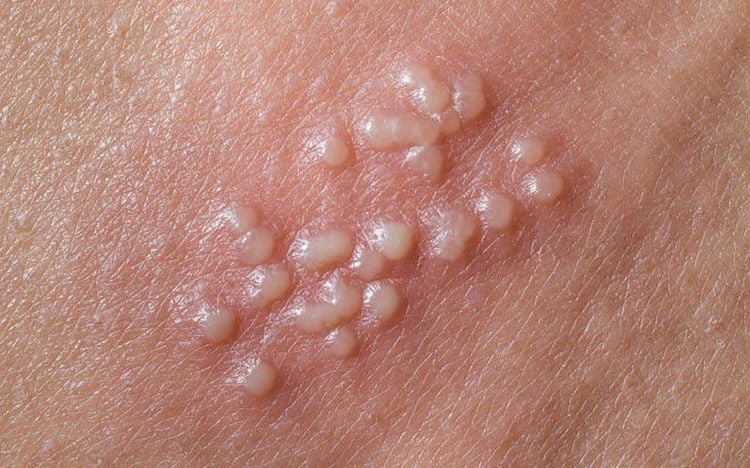Overview Of Genital herpes
Genital herpes is a sexually transmitted infection (STI) caused by the herpes simplex virus (HSV). It is characterized by recurrent episodes of painful sores or blisters on the genital or anal area. HSV-1 or HSV-2 can cause genital herpes, with HSV-2 being more commonly associated with genital infections. The infection is lifelong, with the virus remaining dormant in nerve cells and periodically reactivating.
Symptoms of Genital herpes
- - Painful sores or blisters on the genitals, anus, or surrounding areas. - Itching or burning sensation before the appearance of sores. - Pain during urination if sores are present near the urethra. - Flu-like symptoms during the initial outbreak, including fever, swollen lymph nodes, and body aches. - Recurrent outbreaks, often less severe than the first episode.
Causes of Genital herpes
- - Herpes Simplex Virus (HSV): - HSV-2: Most commonly associated with genital herpes, spread through sexual contact. - HSV-1: Typically causes oral herpes but can spread to the genital area through oral-genital contact.
Risk Factors of Genital herpes
- - Unprotected Sexual Activity: Increases risk of transmission. - Multiple Sexual Partners: Higher exposure risk. - Immunosuppression: Weakened immune system increases susceptibility to infection and reactivation. - History of Other STIs: Indicates a higher likelihood of risk behavior.
Prevention of Genital herpes
- - Safe Sex Practices: Consistent use of condoms reduces transmission risk. - Avoid Sexual Contact During Outbreaks: Reduces likelihood of spreading the virus. - Antiviral Suppressive Therapy: Decreases the chance of transmission to partners. - Screening and Communication: Open discussions with partners about STI status.
Prognosis of Genital herpes
- Genital herpes is a lifelong condition with no cure. Outbreaks tend to become less frequent and less severe over time. With treatment, symptoms can be effectively managed, and the risk of transmission reduced.
Complications of Genital herpes
- - Neonatal Herpes: Transmission to a baby during childbirth, which can cause severe illness. - Increased Risk of HIV: Open sores can make individuals more susceptible to HIV infection. - Psychological Impact: Anxiety, depression, or social stigma associated with the condition. - Bladder Problems: Severe outbreaks may cause inflammation affecting urinary function.
Related Diseases of Genital herpes
- - Oral Herpes (Cold Sores): Caused by HSV-1, with potential to infect the genital area. - Syphilis: Can present with genital sores, requiring differential diagnosis. - Human Papillomavirus (HPV): Another STI causing genital lesions. - HIV/AIDS: Increased risk in individuals with genital herpes.
Treatment of Genital herpes
- **Antiviral Medications**: - Acyclovir, valacyclovir, or famciclovir to reduce outbreak severity and frequency. - Daily suppressive therapy for frequent outbreaks to reduce transmission risk. - **Symptomatic Relief**: Topical anesthetics like lidocaine for pain management.
Generics For Genital herpes
Our administration and support staff all have exceptional people skills and trained to assist you with all medical enquiries.

Acyclovir
Acyclovir

Valacyclovir
Valacyclovir

Famciclovir INN
Famciclovir INN

Acyclovir
Acyclovir

Valacyclovir
Valacyclovir

Famciclovir INN
Famciclovir INN


